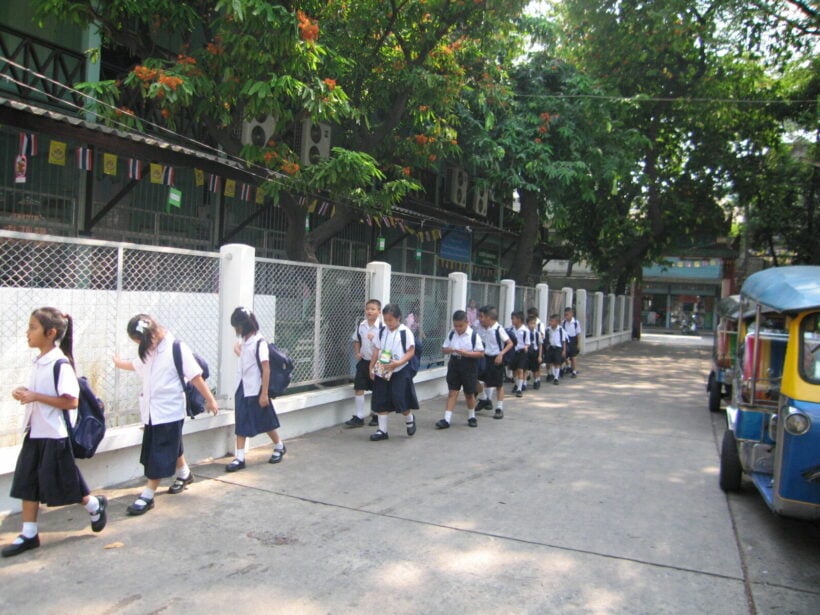As Thai schools reopen, the effects of online learning are evident

As Thai schools reopen, the effects of online learning await to be seen, with many experts saying children will need to spend time catching up upon returning to classrooms. Barriers to online learning such as mental distress, missed school lunches, routine vaccinations, and possible exposure to violence and abuse, have all contributed to students’ falling behind.
Many parents of these students lost their jobs when the pandemic hit, and many who didn’t had to quit in order to stay home with their children when schools were closed. The World Health Organisation has highlighted the plight of such students in Thailand, even saying that despite the Delta variant being highly transmissible, it is important for students to return to school.
Policies that include adequate ventilation, social distancing, alternating in-school days, surface cleaning, hand washing and adhering to safety measures, can be safer for children despite the increased chance of contracting the Covid-19 virus.
The Thai government recently allocated 10 million Pfizer vaccines to public school students, teachers, and school staff members in a bid to reopen schools under its “Sandbox: Safety Zone in School” programme. The WHO says it is a welcoming step towards getting children back on track with learning. As the pandemic has highlighted many gaps in the Thai educational system, the need for going back to school is paramount.
The 2019 Multiple Indicator Cluster Survey by the National Statistical Office and United Nations Children’s Fund report noted that before Covid, Thailand’s educational system was, indeed, lacking. In that report, less than 6 in 10 children in Grades 2 and 3 had basic reading skills, and just under half had basic numeracy skills.
Recently, a study by the Equitable Education Fund, with the Office of the Basic Education Commission, Department of Local Administration and police, found that around 40,000 students in Grades 6 and 9, and considered to be of low socioeconomic status, were at risk of dropping out of school. And, with the recent reopening of government-funded schools, teachers will need help in implementing remedial programmes to catch up the students.
The UN and the Equitable Education Fund says they will jointly assess children’s learning recovery needs in the worst-affected provinces, and design closely-tailored support for both students and educators.
More than 7 in 10 young Thai people have reported stress, worry and anxiety over family income losses and disrupted learning, according to a 2020 survey by the Children and Youth council of Thailand, UNICEF, the UN Populations Fund, and the UN Development Programme.
Another survey consisting of 190,000 respondents, indicated that 32% of respondents are at risk of depression, with 22% at risk of committing suicide. That survey was conducted in January of last year by the Thailand Department of Mental Health.
Suicide hotlines have also reported being overwhelmed since the pandemic struck, with people of all ages in Thailand reporting serious mental health issues. Thus, the UN and WHO both have pushed for the reopening of Thai schools to help combat the adverse effects of the Covid-19 pandemic.
SOURCE: Bangkok Post
Latest Thailand News
Follow The Thaiger on Google News:


























